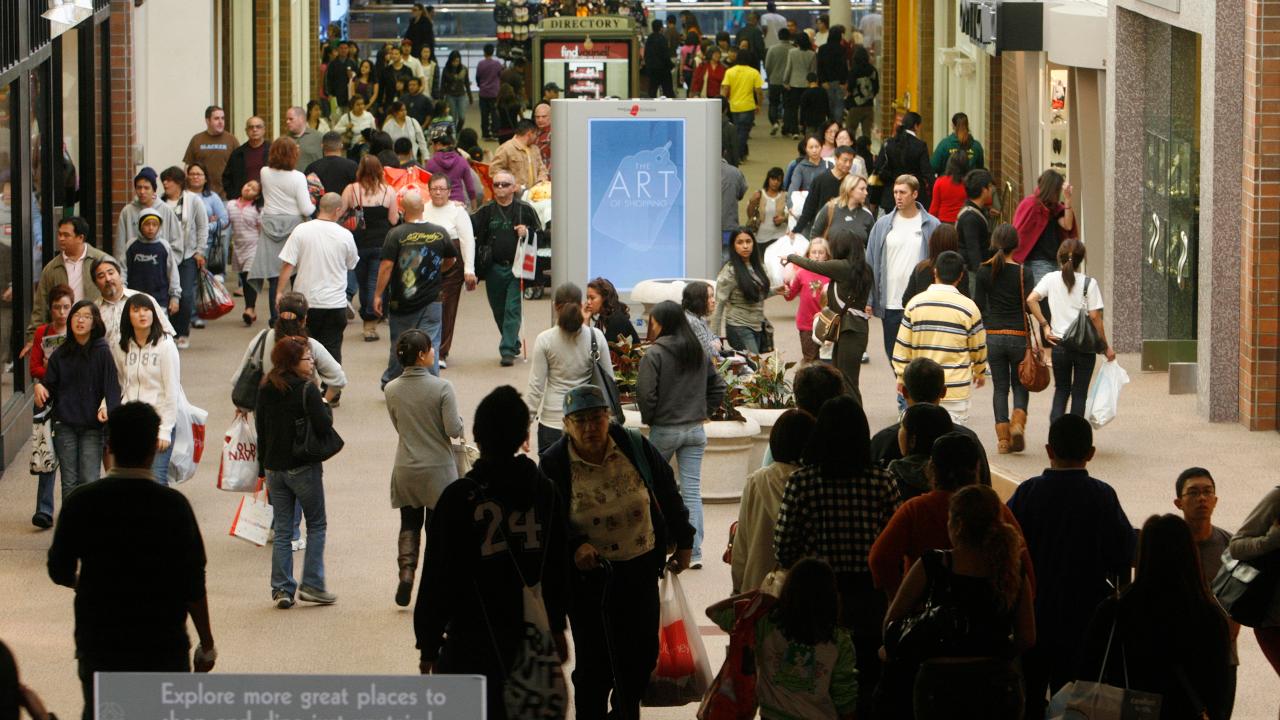Retail industry chasm resumes after blockbuster 2018
The split between flourishing retailers and those struggling in the era of Amazon’s dominance is again deepening.
The sector surged in 2018, as the GOP-led tax cuts fueled corporate savings and bolstered take-home pay for most Americans, leading retailers to increase prices and rely less heavily on promotions to drive sales, experts say.
But as that momentum has slowed, the retail trends driving the divide between retailers are again emerging.
“This is such a disappointing earnings cycle because last year was such an exciting period for retail,” Instinet analyst Simeon Siegel told FOX Business. “There was a head-fake that retail was having its rebirth moment.”
Discounts retailers and those who offer a wide range of products, including groceries, continue their growth trajectory, while others are seeing sales slip and turning again to cutting prices to drive more in-store and online earnings.
“We are being more competitive in pricing and promotion to maintain our relevance with our customers,” Kohl’s CEO Michelle Gass recently told investors.
Profits at the Menomonee Falls, Wisconsin-based retailer dropped 17 percent in the three months through May 4 on a 3.4 percent decline in same-store sales.
Industry-wide, promotional activity at specialty apparel and department stores rose to six-year highs over the last three months, according to Morgan Stanley analyst Kimberly Greenberger.
Hanging over the industry is the threat of additional tariffs on another $300 billion in Chinese imports, as trade negotiations between the U.S. and the Asian nation remain at a standstill. The Trump administration on Tuesday launched the process to determine which products to exclude from the pending list.
Retailers have largely been able to prevent price increases under the existing tariffs on $250 billion in Chinese goods, executives and analysts say. But companies like Walmart, Macy’s and Nike say the new duties will force them to raise costs.
Such a move, however, could collide with a customer that is increasingly on the hunt for bargains. Evidence of this trend is the continued success of discount retailers like TJX Companies. Sales at the parent company of T.J. Maxx rose 7 percent to $9.3 billion in the most recent quarter.
“Our treasure-hunt shopping experience holds tremendous appeal for consumers without the need for gimmicks or promotions,” CEO Ernie Herrman said on the firm’s earnings call on Tuesday.
Addressing the tariffs, Herrman said higher prices from the duties “may create an opportunity for us to attract new customers.”
| Ticker | Security | Last | Change | Change % |
|---|---|---|---|---|
| TJX | THE TJX COS. INC. | 155.86 | +0.46 | +0.30% |
| TGT | TARGET CORP. | 115.56 | +4.66 | +4.20% |
| WMT | WALMART INC. | 131.18 | +4.24 | +3.34% |
| KSS | KOHL'S CORP. | 18.50 | +0.78 | +4.40% |
| NKE | NIKE INC. | 63.92 | +1.22 | +1.95% |
| M | MACY'S INC. | 22.70 | +1.18 | +5.48% |
But the rift in the industry is broader than just the impact of added costs from the trade skirmish with China or price point competition.
Those companies who saw robust growth in the first half of 2019 also touted a slew of new offerings and technology to differentiate themselves from Amazon and draw customers to their physical stores.
Higher utilization of Target’s curbside pickup program, for example, helped underscore a 4.3 percent rise in in-store traffic at the Minneapolis-based retailer. Overall, its profits were $795 million, or $1.53 per share, in the last three months, higher than Wall Street expected.
After reporting earnings on Tuesday, Target’s stock was on pace for its best performance since December 2008.
A similar program at Macy’s also grew this quarter to account for over 10 percent of all digital orders, up from 3.5 percent a year ago.
For Macy's and our competitors “in-store fulfillment is very powerful,” CEO Jeff Gennette told investors earlier this month.
Overall, comparable sales at the Cincinnati-based department store chain, which includes e-commerce, grew just 0.6 percent in the three months through May 4.
Walmart also recently rolled out next-day delivery, a service it says won’t cost money given the reliance on existing shipment centers around the U.S. The world’s largest retailer recently reported higher-than-anticipated adjusted profits of $1.13 per share in the most recent earnings quarter.
CLICK HERE TO GET THE FOX BUSINESS APP
Meanwhile, struggling retailers are turning to new gimmicks to try to spur more in-store traffic. Kohl’s, for example, is banking on a new partnership to allow Amazon customers to return packages to its stores.
“This transformational program does just that. It drives customers into our stores, and we are expecting millions to benefit from this service,” Gass told investors.




















